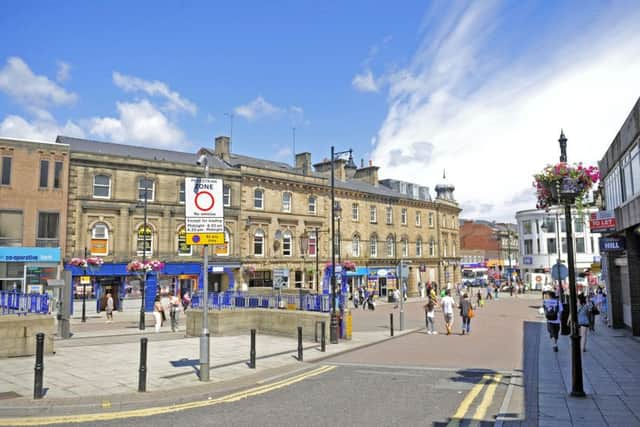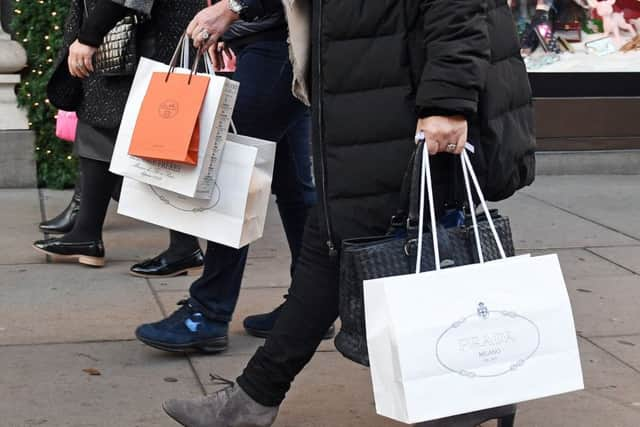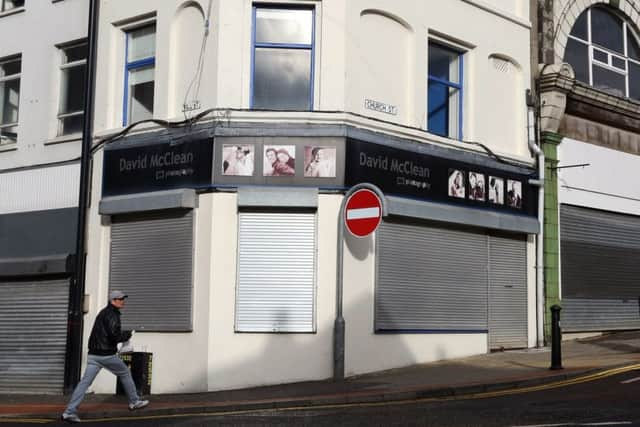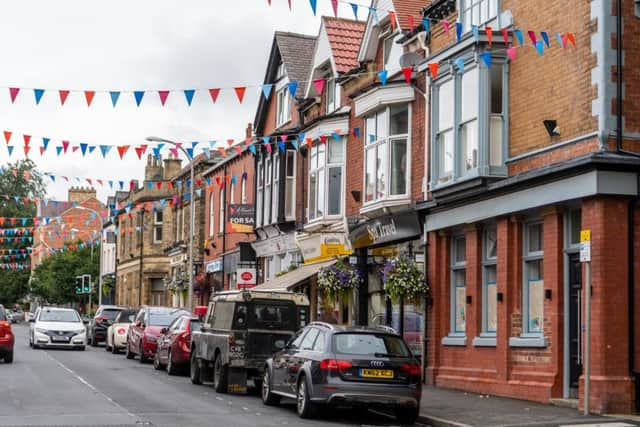What I would do to revive our struggling high streets and town centres in Yorkshire – Jayne Dowle
Not for the first time, I thought about the evolution of this Barnsley street. Seeing this sign for tailoring sent me back to Victorian times when the people had no choice but to make do and mend.
Advertisement
Hide AdAdvertisement
Hide AdIn my childhood, it was a high street in its own right, a thriving row of shops leading to the town centre proper. I remember the butcher, the baker and if not the candle-maker, the shop which sold exquisite baby clothes and the one which specialised in hosiery. Imagine now, a shop which sold only tights, stockings and socks? There were two newsagents. And at least four pubs.


These days, Sheffield Road is a scruffy shadow of its former self. Takeaways and tattoo parlours rub scuffed shoulders with milkshake bars and second-hand furniture stores. When my young nephew came up for a visit from Louth – a relatively affluent small town in Lincolnshire – he looked around in trepidation and asked me if this was “a poor area”?
Advertisement
Hide AdAdvertisement
Hide AdI suppose it is, I conceded. But there are plenty of others exactly like it because, according to the British Retail Consortium, online sales and the popularity of out-of-town shopping centres are to blame for the highest number of empty shops in more than four years.


BRC chief executive Helen Dickinson calls it a “challenging environment” for retailers, adding: “High streets and town centres play an important part in our local communities, and we should be concerned by the rise in empty store fronts.”
Once again we are reminded of the difficulties traders and small businesses face. But do those with the power to make a difference really listen? ‘The high street’ might be on Boris Johnson’s radar but can he deliver?
In his bid for Tory party leadership, he unveiled proposals intended to bring fresh hope to beleaguered shopkeepers and business owners – planning reforms that will allow easier “change of use” for former retail properties, ending business rates charges on free-to-use cash machines in town centres to help keep them widely available and making immediate use of the £675m Future High Street Fund to support local improvement plans.
Advertisement
Hide AdAdvertisement
Hide AdAll good ideas, but they fail to address some fundamental points – business rates are crippling for independent traders and the whole finance model needs a root and branch overhaul; too many towns suffer from awful anti-social behaviour problems such as street drinking and open drug-taking; and parking charges are often exorbitant with restrictions, such as yellow lines in retail-led areas, frankly, suicidal for shops.


When I’ve apprehended traffic wardens and other officials – and believe me, I have – the usual answer is that customers parking outside shops impedes the flow of traffic. Which begs the question, what’s more important – cars or customers?
Underpinning all this needs to be a fundamental shift in thinking. Urban centres, challenged by the internet’s service industry ethos and out-of-town shopping centres offering free parking and easy convenience, need to think about offering more than places to spend money.
For example, the new Library@theLightbox, part of Barnsley town centre’s £180m regeneration, is an excellent example. It is an inspiring multi-functional space incorporating a library, café and studio which can be used for meetings, dance events and functions.
Advertisement
Hide AdAdvertisement
Hide AdThe new market hall, however, is proving less of a success. It set out to bring back Barnsley’s heyday as a proper market town, but the empty stalls and current stand-off between market traders and the local council underline the yawning differences in perception between what people really want and what councillors and planners think they want.


The current difficulties also highlight a certain lack of understanding between the public sector and private enterprise; market traders don’t want to work six days a week when their takings can’t sustain their outgoings.
In the face of all this, I wish that young man at the Golden Needle luck. His surroundings may be tattered and torn, but his instincts are sharp as a pin. The businesses which will survive and thrive through these testing times will surely be the ones which deliver what their customers need.
Identifying these needs – and being brutally honest about what should be discarded or downgraded – is the first step towards survival. Not just for the brave businesses who dare to set sail against prevailing winds, but for politicians at all levels.